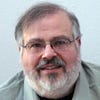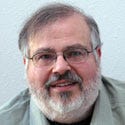Aiming for the SME market, ExaGrid System's built a line of data deduping NAS appliances with 5 models designed to protect from 1 Tb to 5 TB of source data. A year ago a vendor coming out with a deduping NAS would have been noteworthy on its own, but this market moves fast and I'm not that easily impressed any more. What makes the ExaGrid boxes intriguing now is that you can stack up to 5 appliances into a single grid with 34 TB of disk space and a data ingestion rate of over 2 TB per hour.

Aiming for the SME market, ExaGrid System's built a line of data deduping NAS appliances with 5 models designed to protect from 1 Tb to 5 TB of source data. A year ago a vendor coming out with a deduping NAS would have been noteworthy on its own, but this market moves fast and I'm not that easily impressed any more. What makes the ExaGrid boxes intriguing now is that you can stack up to 5 appliances into a single grid with 34 TB of disk space and a data ingestion rate of over 2 TB per hour.ExaGrid takes a unique approach to data deduplication. Rather than take an arbitrary backup stream and break it into blocks, ExaGrid's software knowing the format of the backup files created by popular backup applications, including Backup Exec, ARCserve, and Galaxy, identifies each file that's been backed up and compares it with the version of that file from previous back ups. It then replaces the previous version of the file with a delta file describing the changes from the newest version. This preserves the latest versions intact, speeding restores from the latest back up. The down side to this approach is it can't eliminate duplicate data that appears in multiple files or even duplicate files.
Like appliances from competitors Quantum and Data Domain, the ExaGrid appliances can replicate deduped data from a branch office back to another ExaGrid appliance or grid. The data replication is delayed until after the post-process data deduplication completes, which could be hours after the back-up job runs.
About the Author(s)
You May Also Like







